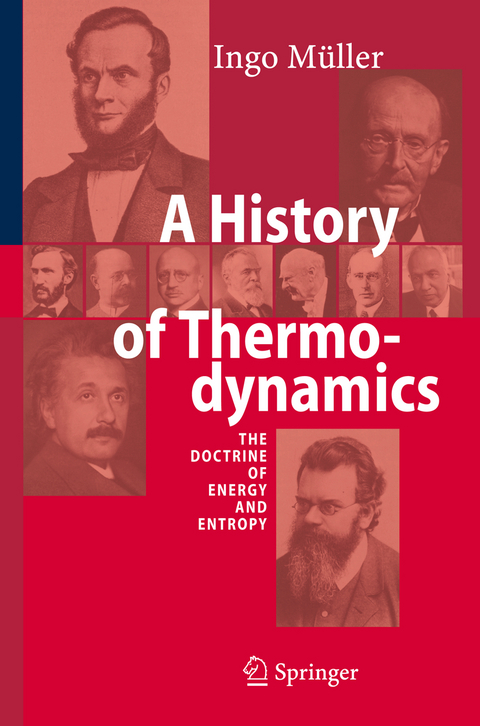
A History of Thermodynamics
Springer Berlin (Verlag)
978-3-540-46226-2 (ISBN)
The development of thermodynamics in the second half of the 19th century has had far-reaching impact on both technology and natural philosophy. True, the steam engine was converting heat into work before thermodynamics was developed as a branch of physics. But the systematic theory improved the conversion process, along with refrigeration and rectification and myriad other processes essential to modern life. So, thermodynamics has assisted humanity with cheap energy, cheap fuel and cheap, abundant, safer food. Thermodynamic research led to quantum mechanics, and to stellar physics. The expansion of thermodynamic technology and natural philosophy is reviewed in the book along with the struggles and fates of some of the engineers and physicists who pioneered the development.
Temperature.- Energy.- Entropy.- Entropy as S = k ln W.- Chemical Potentials.- Third Law of Thermodynamics.- Radiation Thermodynamics.- Thermodynamics of Irreversible Processes.- Fluctuations.- Relativistic Thermodynamics.- Metabolism.
From the reviews:
"Müller ... summarizes the historical development of thermodynamic concepts, going into great depth to detail how certain discoveries were interconnected and how numerous researchers developed these theories based on current available knowledge. ... Readers will appreciate how researchers in the 19th century had to develop basic concepts ... . Summing Up: Recommended. Upper-division undergraduates through professionals." (H. Giesche, CHOICE, Vol. 45 (2), 2007)
"An exhaustive history and presentation of current state of research in the subject of thermodynamics. ... This book is too good ... . The author is an important leader in this field, with most impressive record of research publications. This is a great book, which should be in the library of any scientist interested in thermodynamics. It is easy to read ... . It contains a lot of information about thermodynamics, certainly the history, and biographies of prominent creators of our knowledge." (Vadim Komkov, Zentralblatt MATH, Vol. 1131 (9), 2008)
| Erscheint lt. Verlag | 9.2.2007 |
|---|---|
| Zusatzinfo | X, 320 p. |
| Verlagsort | Berlin |
| Sprache | englisch |
| Maße | 155 x 235 mm |
| Gewicht | 630 g |
| Themenwelt | Mathematik / Informatik ► Mathematik ► Wahrscheinlichkeit / Kombinatorik |
| Naturwissenschaften ► Physik / Astronomie | |
| Technik ► Elektrotechnik / Energietechnik | |
| Technik ► Maschinenbau | |
| Schlagworte | atoms • Energy • Engines • Entropy • Fluctuations • OSMOSIS • phase diagrams • Temperature • thermodynamics • Thermodynamik |
| ISBN-10 | 3-540-46226-0 / 3540462260 |
| ISBN-13 | 978-3-540-46226-2 / 9783540462262 |
| Zustand | Neuware |
| Haben Sie eine Frage zum Produkt? |
aus dem Bereich


